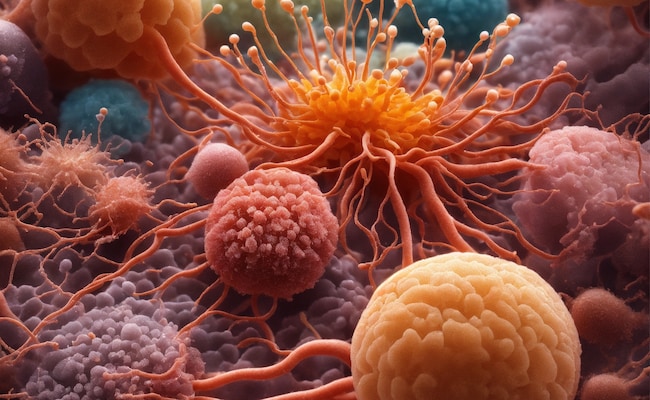Scientists have developed a groundbreaking AI tool that can track your location by analyzing microorganisms found on your body. This innovative method, known as Microbiome Geographic Population Structure (mGPS), creates a unique “fingerprint” of the microorganisms that vary depending on where you’ve been. Unlike GPS, which relies on satellites, this tool can identify whether you’ve visited a beach or a park by matching the microbiome samples to specific environments. The mGPS was highly accurate, successfully pinpointing locations for 92% of urban samples. This technology not only has potential applications in health and forensics but can also help trace the spread of diseases. Overall, it represents a significant leap in using biology for geographic tracking.
Scientists have created a groundbreaking AI tool that can track where you have been by analyzing the unique microorganisms found on your body. This innovative technique, detailed in the journal Genome Biology and Evolution, uses what’s called the Microbiome Geographic Population Structure (mGPS). This tool can help determine if someone has recently visited a beach, a park, or even a train station based on the microorganisms they carry.
Unlike traditional GPS, which relies on satellite technology, the mGPS uses AI to analyze the microbiome, which refers to all the tiny creatures like bacteria and fungi that exist in a particular environment. Researchers from Lund University in Sweden discovered that just like human populations vary across different areas, so do microbial communities. This means that the microorganisms can leave behind clues about where a person has traveled.
Eran Elhaik, one of the researchers, explained that our microbiomes change constantly as we interact with various environments. By tracking these microorganisms, scientists can not only help in understanding how diseases spread but also assist in criminal investigations by providing forensic evidence.
To build their AI model, researchers gathered a vast amount of microbiome data from diverse settings, including urban areas, soil samples from multiple countries, and marine environments. The result is a powerful tool that can accurately identify the location a microbiome sample is linked to, with impressive precision.
In tests, the mGPS successfully pinpointed the source city for 92 percent of samples taken from urban locations. It even distinguished between two subway stations in Hong Kong that were very close together. However, there were challenges in London due to the cleanliness of the underground stations, which affected accuracy.
This new technology opens exciting possibilities for fields like medicine and forensics, showing how tracking microorganisms can provide valuable insights into our movements and health.
Tags: AI technology, microbiome, GPS tracking, Lund University, disease tracing, forensic science, researchers, scientific breakthrough, local environment.
- What is this AI tool that tracks my location using microorganisms?
This tool uses tiny organisms on your skin to help determine your location. It can identify patterns from these microorganisms to track where you are.
- How does it work?
It works by analyzing the unique types of microorganisms that live on your body. The AI compares this data to known locations to figure out where you are.
- Is it safe to use?
Yes, it is designed to be safe and does not harm you. It simply uses the natural microorganisms that already exist on your skin.
- Do I need to install anything on my phone?
No, you don’t need to install anything. The tool can work with existing technology without the need for additional apps or devices.
- Can I turn it off if I don’t want it to track me?
Yes, you can choose to stop the tracking whenever you want. Your privacy and control over your data are important.






